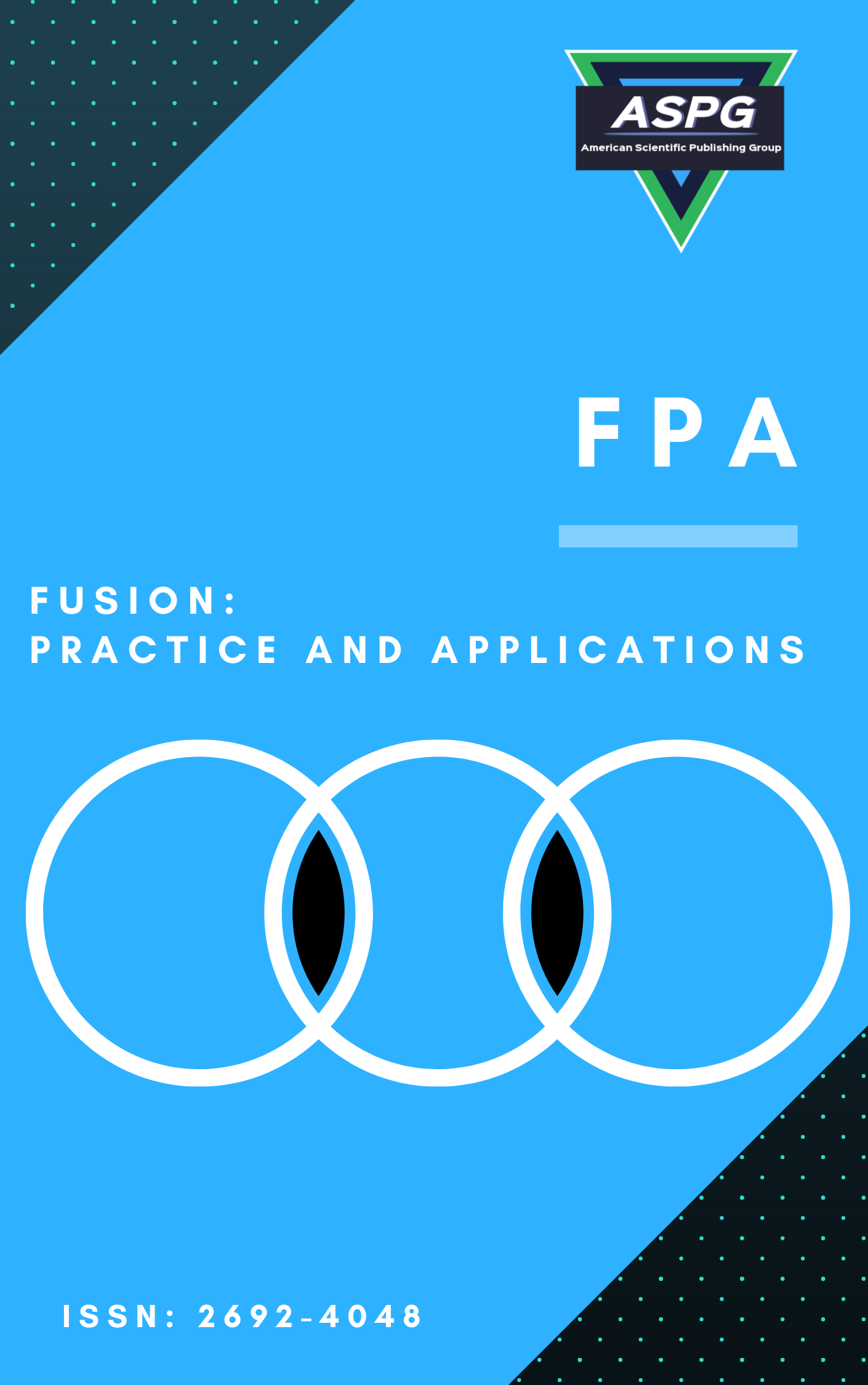

Volume 12 , Issue 2 , PP: 88-97, 2023 | Cite this article as | XML | Html | PDF | Full Length Article
Anita Venugopal 1 * , Mukesh Madanan 2 , Thangadurai kadarkarai 3
Doi: https://doi.org/10.54216/FPA.120207
In this modern world, artificial intelligence has revolutionized human life in multiple ways. Like other fields, education industry is also transforming with the influence of AI with its smart learning platform and automation of tasks. The introduction of fusion of machine learning tools (FMLT) in the field of education helps to predict learning outcomes and identify challenges in learning. The objective of this paper is to study the fusion of application of machine learning tools in education. This paper highlights the role of data driven FMLT in teaching and learning and also analyzes students and teachers’ experiences as well as challenges faced during the implementation of FMLT system. This article discusses various machine learning tools that can be fused into academics. The experiment is conducted on students at graduate level and the results reveal an increase of 88% in terms of learning efficiency for the proposed FMLT system compared to traditional methods, which reflects high positive impact of the contributions of FMLT in academics. Results of the findings also reveal that FMLT applications facilitate thinking, creativity, class engagement and quality teaching inside and outside classrooms. The feedback findings express mixed attitudes concerning the use of machine learning tools in classrooms.
Fusion machine learning , Artificial intelligence , Education , Teaching and learning.
[1] perspective for understanding digital transformation in higher education: Overview and subregional context in Latin America as evidence. Sustainability 2021, 13, 12956.
[2] Huang, X.Y.; Zou, D.; Cheng, G.; Xie, H.R. A systematic review of AR and VR enhanced language learning. Sustainability 2021, 13, 4639.
[3] Yang, H.; Kim, H.; Lee, J.H.; Shin, D. Implementation of an AI chatbot as an English conversation partner in EFL speaking classes. ReCALL 2022, 1–17.
[4] Cancedda, N.; Dymetman, M.; Foster, G.; Goutte, C. A statistical machine learning primer. In Learning Machine Translation; Goutte, C., Cancedda, N., Dymetman, M., Eds.; MIT Press: Cambridge, MA, USA, 2009; pp. 1–38.
[5] Alhaisoni, E.; Alhaysony, M. An investigation of Saudi EFL university students’ attitudes towards the use of Google Translate. Int. J. Eng. Lang. Educ. 2017, 5, 72–82.
[6] Omar, A.; Gomaa, Y.A. The machine translation of literature: Implications for translation pedagogy. Int. J. Emerg. Technol. Learn. 2020, 15, 228–235.
[7] Xu, J. Machine translation for editing compositions in a Chinese language class: Task design and student beliefs. J. Technol. Chin. Lang. Teach. 2020, 11, 1–18. Available online: http://www.tclt.us/journal/2020v11n1/xu.pdf.
[8] Anazawa, R.; Ishikawa, H.; Takahiro, K. Evaluation of online machine translation by nursing users. Comput. Inform. Nurs. 2013, 31, 382–387.
[9] Archila, P.A.; de Mejia, A.-M. Bilingual teaching practices in university science courses: How do biology and microbiology students perceive them? J. Lang. Identity Educ. 2020, 19, 163–178.
[10] Lee, S.M. The impact of using machine translation on EFL students’ writing. Comput. Assist. Lang. Learn. 2020, 33, 157–175.
[11] Han, C.; Lu, X. Can automated machine translation evaluation metrics be used to assess students’ interpretation in the language learning classroom? Comput. Assist. Lang. Learn. 2021, 1–24.
[12] Musk, N. Using online translation tools in computer-assisted collaborative EFL writing. Classr. Discourse 2022, 13, 1–27.
[13] Bowker, L. Chinese speakers’ use of machine translation as an aid for scholarly writing in English: A review of the literature and a report on a pilot workshop on machine translation literacy. Asia Pac. Transl. Intercult. Stud. 2020, 7, 288–298.
[14] Guerberof-Arenas, A.; Toral, A. The impact of post-editing and machine translation on creativity and reading experience. Transl. Spaces 2020, 9, 255–282.
[15] Zhen, Y.; Wu, Y.; Yu, G.; Zheng, C. A review study of the application of machine translation in education from 2011 to 2020. In Proceedings of the 29th International Conference on Computers in Education (ICCE), Electron Network, Bangkok, Thailand, 22–26 November 2021; pp. 17–24.
[16] Cementina, S. Language teachers’ digital mindsets: Links between everyday use and professional use of technology. TESL Can. J. 2019, 36, 31–54.
[17] King, M., Cave, R., Foden, M., Stent, M. (2016). Personalized education: From curriculum to career with cognitive systems. IBM Education, 216–232.
[18] Pan, X. Technology acceptance, technological self-efficacy, and attitude toward technology-based self-directed learning: Learning motivation as a mediator. Front. Psychol. 2020, 11, 564294.
[19] Grossfeld, B. (2020). Deep learning vs machine learning: a simple way to understand the difference. Retrieved July 17, 2020, from: https://www.zendesk.com/blog/machinelearning-and-deep-learning/
[20] Zhang, Q., Yang, L.T. Chenc, Z., Li, P. (2018). A survey on deep learning for big data. Information Fusion, 42, 146–157.
[21] Holst, A. (2020). Volume of data/information created worldwide from 2010 to 2024. In Statista - The Statistics Portal. Retrieved July 25, 2020, from: https://www.statista.com/statistics/871513/w orldwide-data-created/#statisticContainer
[22] Rouse, M. (2011). Machine Learning Definition. Retrieved July 10, 2020, from: http://whatis.techtarget.com/definition/machi ne-learning.
[23] Zhao, T. (2019). The AI Powers Behind Google Translate. CCTP-607: "Big Ideas": AI to the Cloud course. Retrieved July 29, 2020 from: https://blogs.commons.georgetown.edu/cctp607-spring2019/author/tz166/
[24] Dada, E.G., Bassi, J.S., Chiroma, H., Abdulhamid, S.M., Adetunmbi, A.O., Ajibuwa, O. E. (2019). Machine learning for Email Spam Filtering: Review, Approaches and Open Research Problems. Heliyon. 5(6), E01802, doi:https://doi.org/10.1016/j.heliyon.2019.e0 1802
[25] Singh G., Srikant, S. & Aggarwal, V. (2016). Question Independent Grading using Machine Learning: The Case of Computer Program Grading. Proceedings of the 22nd ACM SIGKDD International Conference on Knowledge Discovery and Data Mining, San Francisco, California, 263–272.
[26] Durdevic Babic, I. (2017). Machine Learning Methods in Predicting the Student Academic Motivation, Croatian Operational Research Review, 8(2), 443–461.
[27] Dlabac, T., Milovanovic, A., Koprivica, B., Calasan, M., Janjic, M. (2019). Evaluation of internet-based practical teaching in higher education, Proc. of the International Scientific Conference, 15th–16th, November, 2019, Gabrovo, 3, 209-213.
[28] Kawade, B., Ghrcem, P., Wagh, Dr. K., Pune, G. (2016). Data Analytics in Educational Management System. National Conference on Advances in Computer, Communication and Networking, ACCNet – 2016), Pune, Maharashtra, February 2016, 22–25.